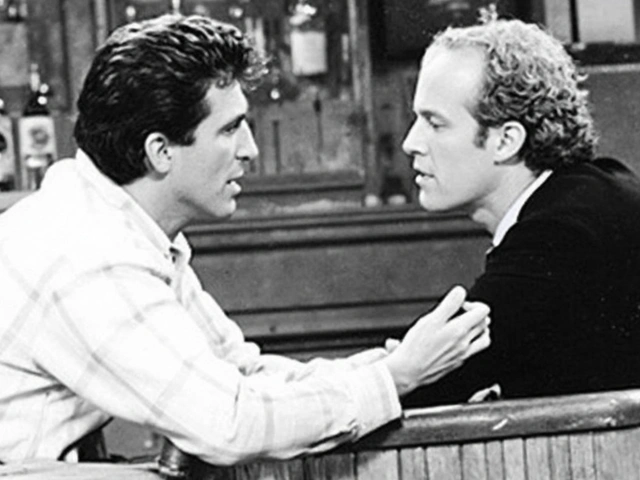The Federal Competition and Consumer Protection Commission (FCCPC) has taken a significant step against Coca-Cola Nigeria, accusing the multinational beverage company's local subsidiary of employing misleading trade descriptions and unfair marketing tactics. The accusation springs from a consumer complaint concerning the product 'Simply Apple Juice,' which allegedly contains less than 100% apple juice, contradicting its label. This issue has sparked a broader discussion about consumer rights and corporate accountability in Nigeria.
For many consumers, labels play a crucial role in their purchasing decisions. The promise of transparency and authenticity in product descriptions builds trust. However, when these trusts are breached, it calls into question the integrity of both the product and the company. The FCCPC has addressed this breach of trust, declaring that such misleading representations violate consumer rights and undermine the commission's mandate to assure fair competition and accurate information dissemination.
Details of the Complaint
The complaint that triggered the FCCPC's action was lodged by a vigilant consumer who questioned the authenticity of 'Simply Apple Juice.' According to the package labeling, the juice should be 100% apple juice. However, laboratory analysis and consumer observation indicated otherwise. Such discrepancies between product labeling and actual content are not just minor faults — they are misleading tactics that can cloud consumer judgment and preference.
The alleged misrepresentation by Coca-Cola Nigeria's product could lead to several consequences. Firstly, it could distort the market's competitive landscape, as products not living up to their claims can unfairly dominate shelf space. Secondly, it undermines the principle of informed choice, a cornerstone of consumer rights. Consumers deserve to know precisely what they are purchasing, especially when health choices are involved.
FCCPC's Stance and Actions
The FCCPC has made it clear that it will not tolerate such deceptions. The commission is dedicated to preserving consumer rights and ensuring that businesses adhere to fair marketing practices. By initiating an investigation into Coca-Cola Nigeria's marketing strategies, the FCCPC aims to unearth the extent of misleading information and hold the company accountable.
The FCCPC's actions resonate with its broader objective to protect Nigerians from fraudulent activities and ensure compliance with existing competition and consumer protection regulations. The commission remains committed to transparency and rigor in its investigative processes. If the allegations against Coca-Cola Nigeria are found true, the company could face severe penalties, which might range from hefty fines to mandates to alter their marketing and production processes.
Impact on Consumers
Consumers are at the heart of this investigation. Misleading product labels can have far-reaching effects, including potential impacts on health, finances, and overall trust in market products. In the case of 'Simply Apple Juice,' consumers who believed they were purchasing a pure apple juice product may feel deceived and frustrated.
This issue underscores the need for consumers to remain vigilant and informed about the products they purchase. It also highlights the necessity for strict regulatory frameworks and robust enforcement mechanisms to hold companies accountable for their marketing practices. The FCCPC's initiative is a step in the right direction, ensuring that consumer interests are safeguarded.
Corporate Responsibility and Accountability
Coca-Cola Nigeria, being a significant player in the beverage market, bears a substantial responsibility towards its consumers. Ethical marketing and accurate product descriptions are not merely legal obligations but also moral imperatives for businesses. Misleading labels can tarnish a company's reputation and erode consumer trust, which may take years to rebuild.
As the investigation progresses, it offers an opportunity for Coca-Cola Nigeria to reassess its marketing practices and prioritize transparency. The company might consider more stringent internal checks and quality control measures to ensure that product descriptions match their actual content. Such steps can help in rebuilding consumer trust and reinforcing the company's commitment to ethical business practices.

Speaking to Broader Market Implications
While this incident specifically concerns Coca-Cola Nigeria, it casts a wider net across the beverage and broader consumer goods industry in Nigeria. The scrutiny and subsequent actions by the FCCPC set a precedent for other companies, emphasizing the importance of compliance with consumer protection laws and honest marketing.
The FCCPC’s rigorous approach serves as a warning to other businesses about the consequences of misleading consumers. It stresses the need for authenticity in trade practices, urging companies to reassess their marketing strategies and product descriptions. This is crucial in building a market environment where competition is fair, and consumers can make informed choices.
Final Thoughts
The unfolding situation with Coca-Cola Nigeria is a significant development in the realm of consumer rights in Nigeria. It underscores the critical role of regulatory bodies like the FCCPC in protecting consumers and ensuring fair market practices. As the investigation continues, all eyes will be on the FCCPC and Coca-Cola Nigeria to see how this situation resolves.
This case serves as a reminder to consumers about the importance of scrutinizing product labels and staying informed. It also emphasizes the need for companies to prioritize transparency and honesty, which are essential for maintaining consumer trust and loyalty. The outcome of this investigation could pave the way for stronger consumer protection mechanisms and greater corporate accountability in Nigeria.






